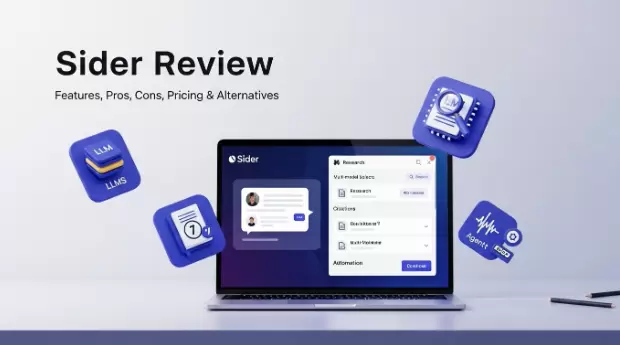In this digital age, opportunities are endless. The internet is a dimension of infinite possibilities for people to grow, promote, and market their businesses. Most startups take advantage of this prospect and ensure that their company has a running internet presence. And one way they do this is by building a website.
However, with all the competition online, building a website is not sufficient. You need to create a concise but eye-catching enough that you'll attract visitors into customers. And this process is not simple. You need to write, design and develop a user-friendly website that stands out from your competitors.
Luckily, we can help you with that! This article will share 10 tips for developing a website as a startup!
Why do you need a website as a startup?
It's a common misconception that startups should not spend money on a website, mainly because they are expressive to make and maintain. Most think that the website is useless in generating sales or getting customers.
On the contrary, a website is one of the most essential needs for a startup. A website is the most crucial asset for any startup. It's the first thing people see, and it actually makes a great impression on people. It creates the essence of legitimacy. And as a startup, reputation and legitimacy are what you need to attract customers. So, if you want to attract investors and customers, you need a professional website.
In addition, developing a startup website can help you market your products or services,
10 Tips on How to Get the Most of Your Website as a Startup
As mentioned earlier, startup websites are the key to success. It drives a lot of traffic, converts customers, and acts as a storefront for your internet business.
Thus, you must do it right. So whether you are hiring a website development team or will develop the startup website yourself, you must do everything right. You need to make sure that it is a performing website and not just a crappy or scammy website.
Likewise, here are 10 tips on developing your startup website and getting the most out of it!
1. Keep It Simple and Minimalistic with Your Design
A website design can make or break a startup company. A wrong website design can lead to a lot of problems. And if it's too complicated, visitors may not be able to find the information they are looking for, such as product data or contact information. And this is the last thing you want as a startup – losing a potential customer over a web redesign agency.
Likewise, we should always keep in mind that simplicity is the key to a startup website. We should never overwhelm our visitors with too many features. Moreover, you should start with the idea of not trying to sell anything on the site but just trying to get people interested in what we have to offer.
2. Make sure it's optimized for SEO
One primary reason startups should focus on Search Engine Optimisation (SEO) is visibility. SEO can help them get their name out there. A strong SEO strategy will help them rank higher in SERPs, generate more traffic, and attract more potential clients - which they can convert into revenue.
However, SEO optimization for a startup website is not just about ranking well on Google. It's about ranking well in search results relevant to your business. As such, here are some ways to adopt SEO in your startup website:
- Using keywords in your content;
- Create a power page content along with infographic or presentation videos;
- Posting SEO optimized and rich articles;
- Optimizing the URL structure;
- Publishing content regularly and consistently;
- Fast loading speed;
- Existence of high-quality backlinks;
- Linking from social media to your website.
3. Place clear CTAs
CTAs are an essential factor for any website as they can make or break the site's conversion rates. Per se, a startup website should have clear CTAs so that visitors know what they are supposed to do on the site.
The best way to put a CTA on a website is to make it prominent and eye-catching. You should also make sure that it's easy to find and doesn't require any effort on the visitor's part to click on it.
4. Maintain a cohesive brand identity
Branding is essential for every business, especially for startups. It gives your startup an identity, personality, beliefs, values, and story. It is a way for customers to easily remember your company. Good branding can make you iconic to your customers.
And since your website is the storefront of your startup on the internet, you should make sure that it has your branding. Your startup websites should maintain cohesive brand identity and design. It can help you establish a personal connection with your visitors and communicate your product to them. This will give the website an edge over its competitors.
Likewise, a well-thought-out brand identity in your website can create a lasting impression on the customer, making them want to come back to your site repeatedly. It also helps build trust with customers, which becomes crucial when dealing with sensitive information like banking details or personal information.
5. Post engaging and niche content
Niche content is a must for startups. It helps them connect with their target audience and provides them with an opportunity to get discovered by potential investors. As such, your website should have content that will be able to engage with your visitors and make them want to discover more about your offerings.
Here are some tips that will help you create better niche content for your startup:
- Target a specific niche close to your business industry. You must understand the needs of your target audience and come up with solutions to those needs.
- Ensure that your niche content is engaging and has the potential to be shared on social media.
- Make sure that you post at least one piece of niche content per week.
- You can also try guest posting on a related website to invite others to visit your blogs and articles.
6. Make sure that it's easy to navigate
When people use a website, they usually go to the homepage and then explore. So, your navigation needs to be easily maneuverable.
A well-designed and easy-to-navigate website is an essential factor in attracting potential customers. Customers will want to explore your site, so it needs to be easy to find what they are looking for without having too much trouble. A good navigation design will help make your site more user-friendly and encourage visitors to stay on the page longer.
7. Leads to Your Social Media Accounts
Social media platforms are powerful tools for marketing and promoting your business. They are also a great way to stay in touch with customers and other people who may be interested in your company.
Likewise, adding social media accounts to your startup website is a great way to increase the spread of your content. When you include a share button on social media button on your website, users will likely do it if they enjoyed your content enough. It can help you grow your business by increasing awareness of what you offer.
8. Show Testimonial
Testimonial is a startup website need. It is crucial for your startup website because they give a sense of legitimacy to the product. And since you are only starting, this lets the user feel more confident about the product, which leads to them trusting it more.
Moreover, adding testimonials to your website is an excellent alternative to the standard sales pitch. Most consumers are more likely to buy your products after seeing other customer reviews.
9. Adaptive Design and Mobile Friendly
According to the latest data from GSMA Intelligence, there are about 5.32 billion unique mobile phone users in the world. And as a startup, you should not ignore the opportunity to make your website accessible to these people.
As such, mobile-friendliness is crucial to the success of any startup website. A website that is not optimized for mobile devices will not be able to provide the best experience for them. Potential customers using mobile to browse your website will likely leave when they see your website is not mobile optimized.
10. Be ready for changes and adapt!
Startups have a lot of unique challenges to face. They have to think about their customers, their branding, and the market they are in. It can be challenging for startups to keep up with website trends in this fast-paced world.
But if they don't adapt to the trends, they will not be able to make themselves stand out from the competition. Websites are built for the people who visit them. It is essential to know what your audience wants and needs to provide them with that experience. Monitor their behavior and experience on your website, collect results and share your ideas with digital reports with your team, so you will discuss it together and make it better. The website should be able to provide what they need and make sure that they have a good time while they are there.
Final Thoughts
There is no instant recipe for building the perfect startup website. You are most likely to stumble or face challenges when developing one. Still, it would be better to follow these tips and minimize errors. After all, you are just starting with your business and have limited resources.
So make sure to get it right and see your website help you increase sales and revenue!


 Table of Content
Table of Content










